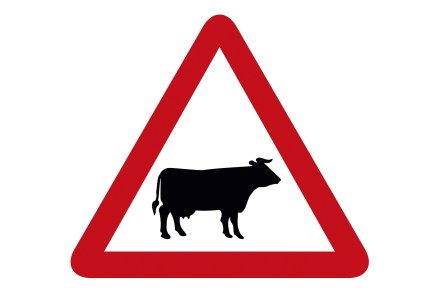My horse is allergic to beige carpet
The horse lorry arrived and lowered its ramp — and I stood in front of it knowing that my thoroughbred was not going to load. We were already beyond stressed, having been told our lease at the farm was not being renewed, and with the shooting season bearing down on us. In one week the guns would be going off around us. The horses had to be moved. But this blasted ramp was covered in beige carpet. If it had been red carpet, Darcy might have been happy. She is so precious, so oversensitive, so self-absorbed that I have no doubt she would have appreciated a red carpet. But lumpy











